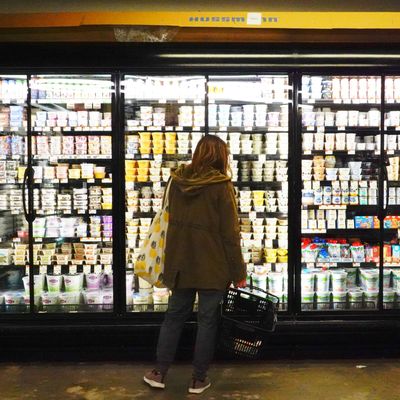
While you can learn a lot about public opinion on politics by paying attention to officials’ job-approval numbers and electoral trial heats, polling on specific issues is helpful too. If, for example, the public is worried about threats to democracy, it’s bad news for the likes of Donald Trump.
Gallup’s latest monthly measurement of the “Most Important Problem Facing the U.S.” is a good indicator of how rapidly the “issue landscape” can change. The question was open-ended, which means that answers were volunteered.
In January, “coronavirus/diseases” was cited as the most important national problem by 20 percent of respondents (this put the pandemic in second place overall behind the generalized I-hate-Washington “problem” of “the government/poor leadership” cited by 23 percent). By March, only 3 percent named “coronavirus/diseases” as a top worry, the lowest level found by Gallup since the beginning of the pandemic (the highest, at 45 percent, was in April 2020). Three times as many people were worried most about the “situation with Russia and Ukraine.”
Meanwhile, three closely related issues — “high cost of living/inflation,” “economy in general,” and “fuel/oil prices” — were named as the top problem by a combined total of 16 percent of respondents in January. That number doubled to 32 percent in March.
A separate Gallup battery of questions names problems and ask respondents if they worry about them “a great deal.” This approach shows a lot of fretting going on in America:
Inflation emerges as a leading public concern on this basis as well, with 59% saying they worry about it “a great deal.” It is roughly tied with the 58% worried a great deal about the economy.
Slightly smaller majorities worry this much about crime (53%) and hunger/homelessness (52%), while just under half worry about access to healthcare (49%), federal spending (48%), and the availability and affordability of energy (47%).
Closer to four in 10 worry about the environment (44%), race relations (41%), illegal immigration (41%), the Social Security system (40%), drug use (38%) and the possibility of a terrorist attack against the United States (38%).
Americans are least concerned about unemployment, with 32% saying this worries them a great deal.
This last finding is significant insofar as fighting inflation may involve policies that boost unemployment.
All in all, this is not an issue landscape conducive to Democratic odds of success in the November midterms. According to Gallup, a fifth of the public hates Washington (which is controlled by Democrats, the party of government activism) and nearly a third is upset about an economy that is operating nearly at full employment with robust growth. Given the historical pattern of significantly lower turnout of voters from the president’s party in midterm elections, the particular problem Democratic constituencies (like young voters) have showing up for non-presidential elections, and Joe Biden’s low net approval ratings, 2022 is shaping up as a good year for a Republican Party that need not show its hand in terms of what it would do with the power it seeks.































